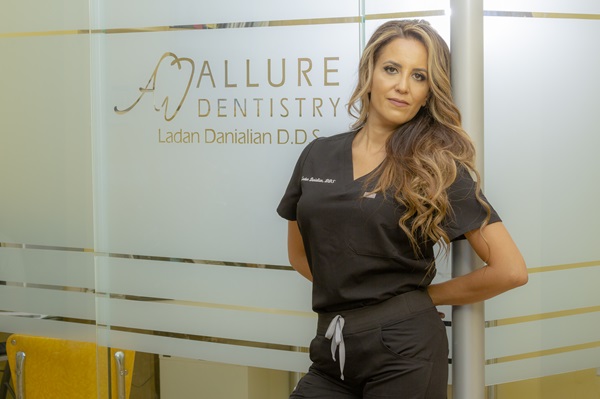How Does a Dentist Choose What Type of Dental Restoration is Right For You?

Dentists perform dozens of types of dental restorations, ranging from minimally invasive fillings to invasive but wholly restorative dental implants. When a dentist discusses the need for you to invest in restoration, you may wonder how they will make a recommendation. What factors will the dentist consider when deciding what techniques and materials to use to change your smile for the better? During your consultation, your dentist should mention the factors behind any important decision. As the patient, you have a right to choose the option that suits your lifestyle, budget, and current oral health.
Factors that may influence dental restorations
The purpose of dental restorations varies as greatly as the materials a dentist might use to the techniques necessary for implantation. For this reason, it is essential that a dentist carefully assesses several factors before recommending any restoration. The main factors a dentist may consider are as follows.
The extent of and type of damage
One of the first things a dentist will assess before recommending a restoration is the type and extent of the damage. A filling, for instance, may help to fully restore the function of a tooth with a minor cavity. However, a filling would make little to no difference if the tooth is falling apart because of extensive decay. Instead, the dentist may wish to place a crown or perform a root canal. Likewise, neither a filling nor crown could help replace missing teeth; in the case of missing teeth, a dentist may recommend a bridge, denture, or implant.
The location of the damage
The location of the damage in the mouth and on the tooth plays just as important in a dentist’s recommendations as to the type and extent of the damage. For instance, if decay is located primarily along with the crown and at the tooth’s surface, a dentist may recommend an onlay. However, if the damage extends far beneath the tooth’s surface, the dentist may need to drill deeper to remove it and, therefore, recommend an inlay to restore the tooth.
The cause of the damage
The cause of the damage helps a dentist determine the proper course of action to prevent further issues. For instance, if a patient has damage due to teeth grinding, the dentist may recommend a mouthguard in addition to crowns to further protect the teeth. If a patient loses their teeth due to periodontal disease, the care provider must take the condition into consideration. The patient may require more ongoing maintenance to protect oral health.
A patient’s budget
Though dentists do not like to see the cost come in the way of strong oral health, many understand that cost is often a prohibitive factor to treatment. A dentist may carefully weigh a patient’s desire for cost-effective treatment with the need for dental restorations and come up with a recommendation that satisfies both. Often, dentists will also take future costs into consideration. For instance, the initial cost of treatment may seem affordable, but when you factor in future maintenance and procedures, it may venture outside of a patient’s budget.
Need for ongoing treatment
Many restorations require patients to attend one or several follow-up appointments. If a patient cannot attend follow-up visits for whatever reason, a dentist may recommend a restoration that is more in line with what the patient can handle. Dentists do not want to overtreat teeth. For example, a dental bridge may solve a problem quickly, but it also requires the dentist to perform alterations on neighboring teeth. Over time, patients require further work on their teeth. The dental professional weighs the pros and cons of ongoing treatment.
The length of recovery
The recovery times, like dental restorations themselves, vary greatly from treatment to treatment. A filling and crown, for instance, require little to no recovery time. Root canals, implants, and other more invasive procedures, however, may require days to months of recovery. A dentist may discuss with a patient the potential recovery times for each option and base recommendations on both what the patient needs and what the patient can handle.
Conclusion
A dentist will consider several factors before recommending dental restorations for patients. If a dentist makes a recommendation for you, know that they did not come to the recommendation lightly. Dental professionals do not want their patients to undergo unnecessary, expensive procedures. Their initial concern is the health of your mouth and your ability to maintain restorative treatments without complications.
Request an appointment here: https://www.alluredentistry.com or call Allure Dentistry at (310) 683-5321 for an appointment in our Los Angeles office.
Check out what others are saying about our dental services on Yelp: Dental Restorations in Los Angeles, CA.
Recent Posts
While brushing is crucial for oral health, it can't restore the shade of one's teeth or correct alignment.If you are interested in restoring a damaged tooth or replacing a missing one, then we can help with various types of dental restorations. We customize our dental restorations to the mouth, teeth, jaw, and needs of each…
While taking care of a dental implant is relatively easy, one needs to be careful and keep the teeth in strong shape.If you're looking for a way to replace missing teeth with the appearance of a natural smile, then we can help. With dental implant restorations, we can help to match the shade, shape, and…
A restorative dentist is exactly who you need to talk to if you have missing teeth. Losing a tooth can be a worrisome experience as you realize your smile has been permanently changed. Fortunately, there are many missing tooth replacement options these days thanks to the countless dental innovations that have occurred in the past…
Restorative dentistry has a handful of ways to go about restoring a broken tooth. It typically comes down to how severely damaged the patient’s tooth is. Restorative dentistry focuses mainly on restoring the function of teeth that have been damaged. Doing so typically improves the way the tooth looks as well.Here are some of the…

